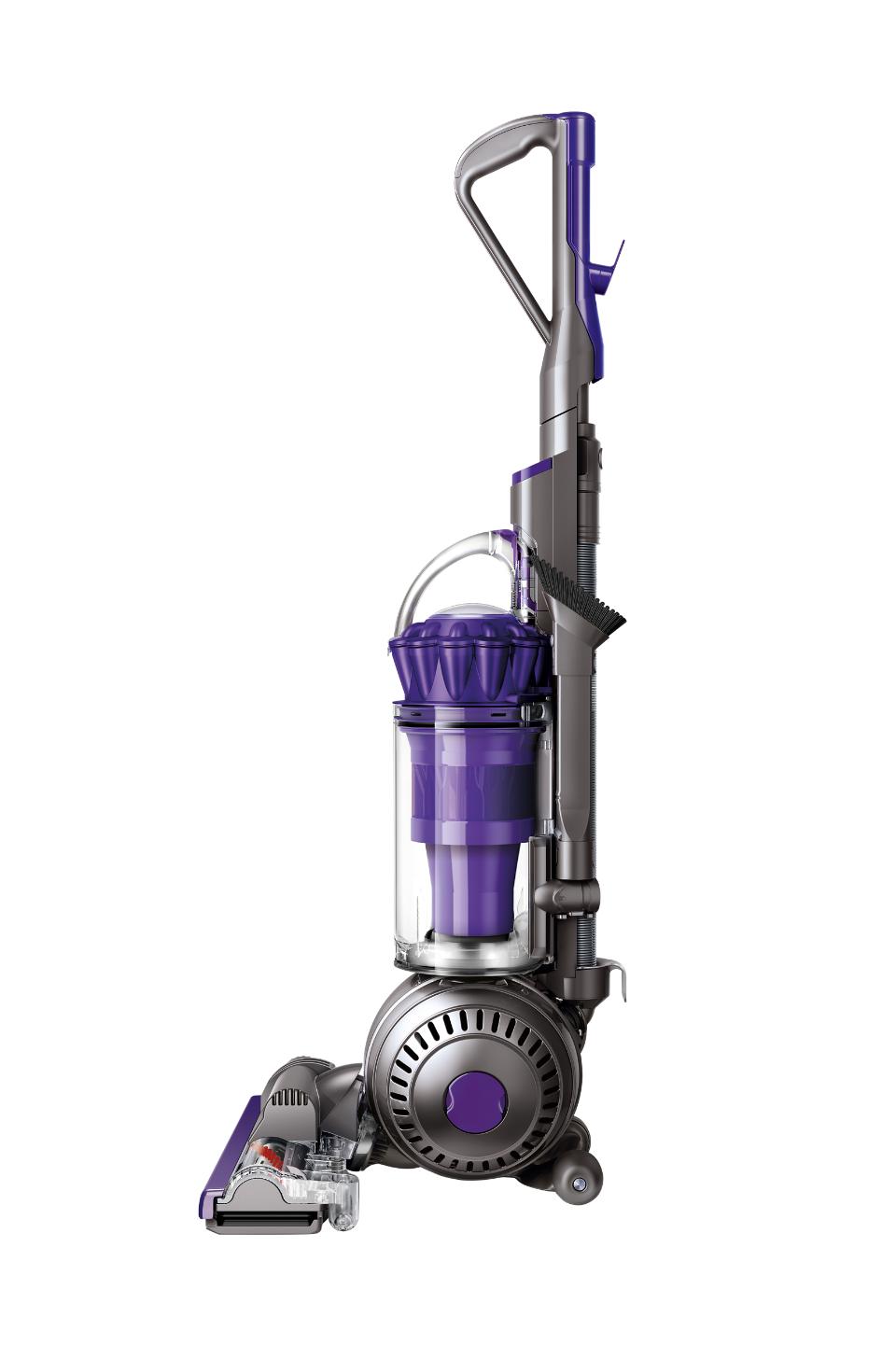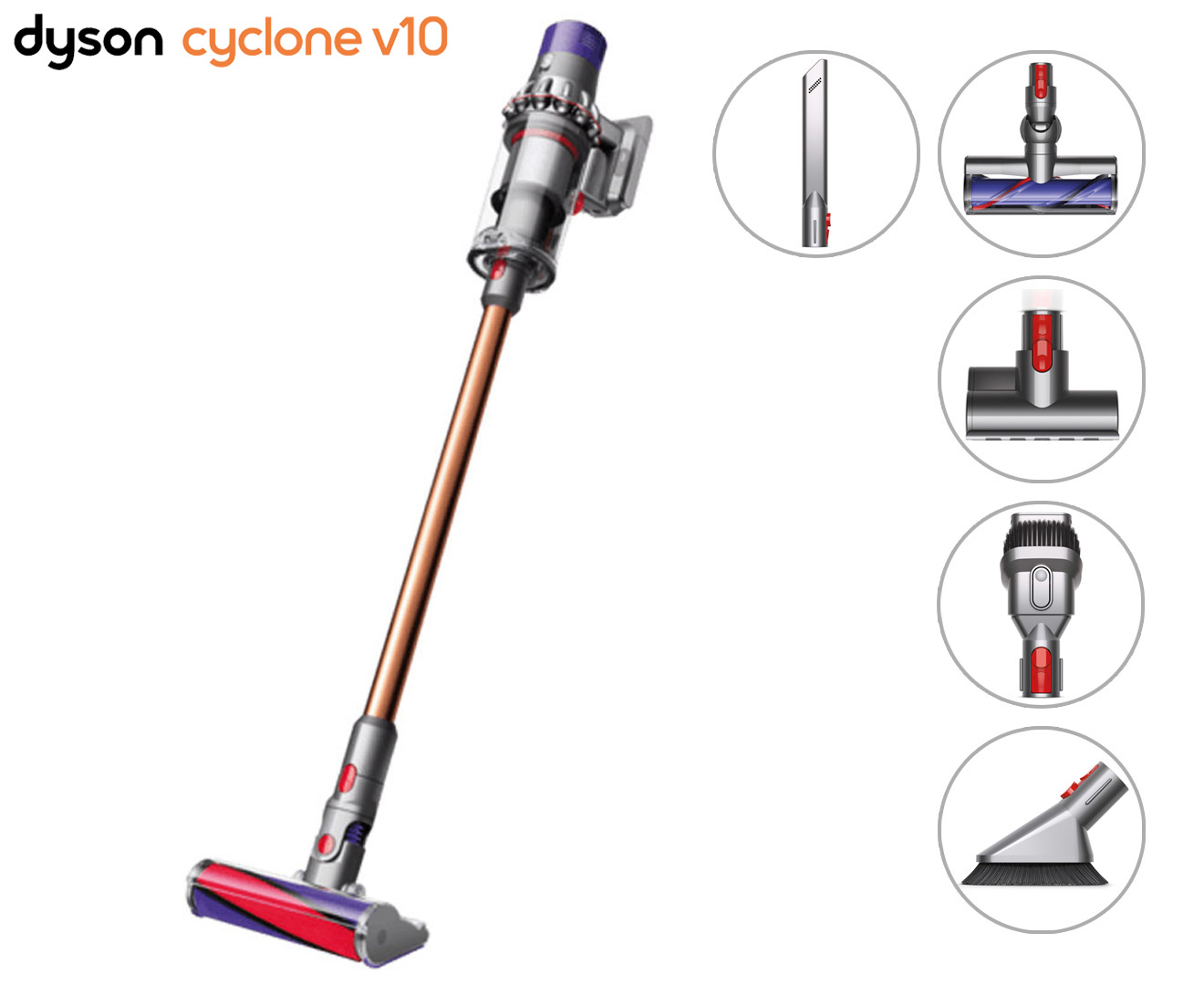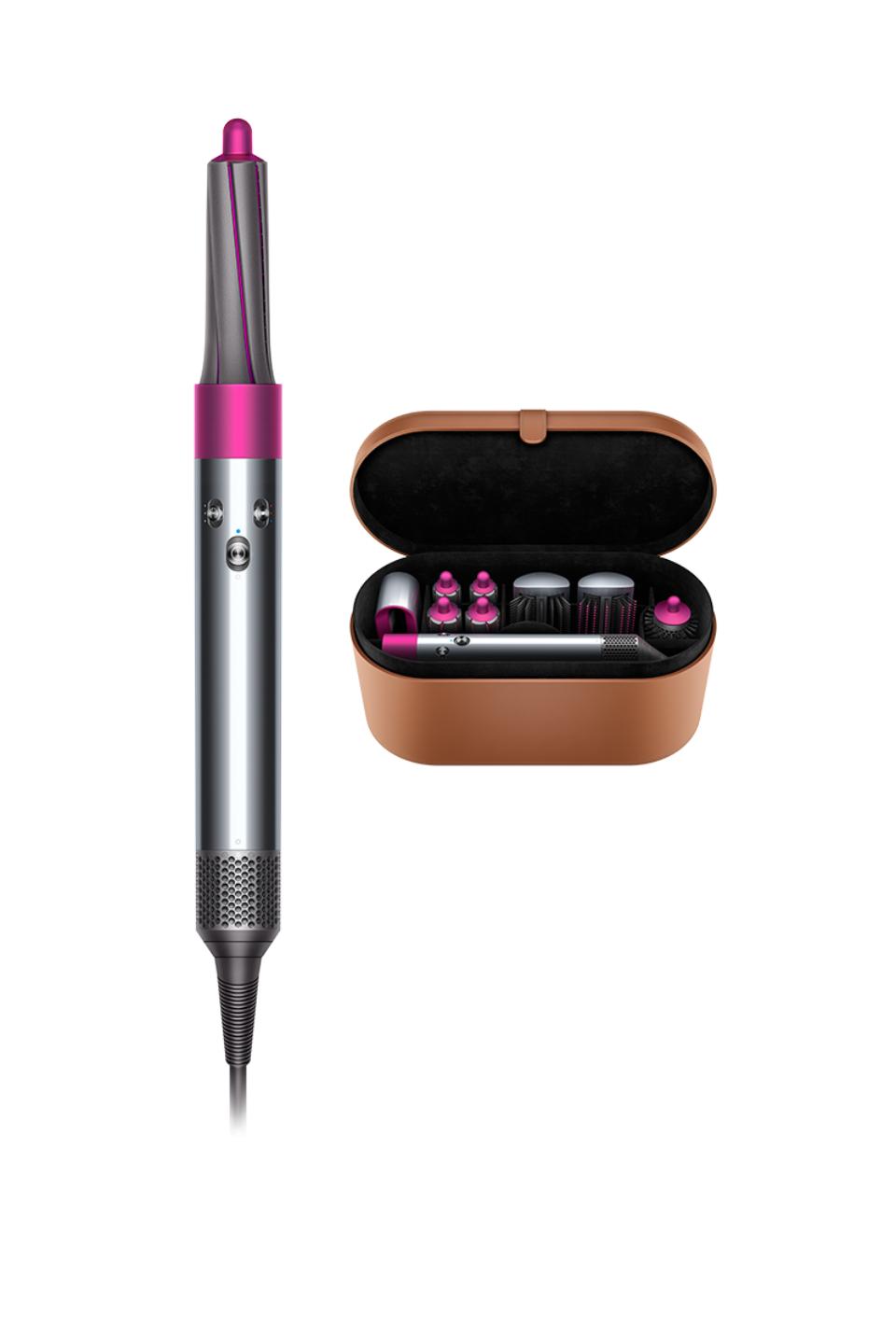Ninja™ CREAMi™ Ice Cream, Sorbet & Milkshake Maker NC301 – Ninja
-
( 7 Reviews )Rated 5.00 out of 5 based on 7 customer ratings07
The Ninja™ CREAMi™ transforms frozen solid bases into ice cream, sorbets, milkshakes, and more at the touch of a button. Enjoy completely customizable treats.
-
Honey Artisan® Series 5 Quart Tilt-Head Stand Mixer in Honey KSM175PSHY
Rated 5.00 out of 510Honey Artisan® Series 5 Quart Tilt-Head Stand Mixer in Honey KSM175PSHY
Rated 5.00 out of 510 -
Dyson Ball Animal 2 Pet Vacuum Cleaner (Purple)
Rated 5.00 out of 508Dyson Ball Animal 2 Pet Vacuum Cleaner (Purple)
Rated 5.00 out of 508 -
Dyson Cyclone V10 Absolute+ Cordless Vacuum Cleaner – Australia
Rated 5.00 out of 503Dyson Cyclone V10 Absolute+ Cordless Vacuum Cleaner – Australia
Rated 5.00 out of 503 -
Dyson Airwrap™ Complete (Nickel/Fuchsia)
Rated 5.00 out of 511Dyson Airwrap™ Complete (Nickel/Fuchsia)
Rated 5.00 out of 511
The Ninja™ CREAMi™ transforms frozen solid bases into ice cream, sorbets, milkshakes, and more at the touch of a button. Ninja’s Creamify™ technology enables the CREAMi™ to break down a uniformly frozen block into an incredibly smooth, creamy texture in minutes. From healthy to indulgent, the Ninja™ CREAMi™ can create frozen treats as unique as you are!
- Turn almost anything into ice cream, sorbet, milkshakes, and more.
- Create completely customizable treats. With the Ninja™ CREAMi™, you can have total control of your ingredients for low sugar, keto, dairy-free, and vegan options.
- From sweet to savory and healthy to indulgent, there’s a CREAMi™ treat for everyone. Create flavors and mix-in combinations that you can’t find in the store.
- (7) one-touch programs allow for the perfect combination of speed, pressure, and time to completely shave through your frozen pint. Choose between Ice Cream, Sorbet, Gelato, Milkshake, Smoothie Bowl, Lite Ice Cream, and Mix-in.
- Create a CREAMi™ treat in three easy steps. Simply prep your base, freeze overnight, process, and enjoy!
- Select the Re-spin function if, after processing, you want your processed treat softer and creamier.
- Easily customize flavor and texture. Mix in your favorite chocolate, nuts, candy, fruit, and more to personalize any CREAMi™ treat.
- Creamify™ technology enables the CREAMi™ to break down a uniform frozen block into an incredibly smooth, creamy texture.
- Containers, lids, and paddle are top-rack dishwasher safe.
Meet the Ninja™ CREAMi™.
Dual Drive Motors
The Creamerizer™ Paddle
7 One-Touch Programs
CREAMi™ treats
Ice Cream + Gelato
Milkshakes
Smoothie Bowls + Lite Ice Cream
Sorbet
Easy to use and clean
Mix-ins
Pints & Lids
Dishwasher Safe
Additional information
| Cord length (ft.) | 2.5 |
|---|---|
| Product dimensions (in.) | 6.52 in L x 12.07 in W x 15.95 in H |
| Wattage | 800 watts |
Cream is a dairy product composed of the higher-fat layer skimmed from the top of milk before homogenization. In un-homogenized milk, the fat, which is less dense, eventually rises to the top. In the industrial production of cream, this process is accelerated by using centrifuges called "separators". In many countries, it is sold in several grades depending on the total butterfat content. It can be dried to a powder for shipment to distant markets, and contains high levels of saturated fat.
Cream skimmed from milk may be called "sweet cream" to distinguish it from cream skimmed from whey, a by-product of cheese-making. Whey cream has a lower fat content and tastes more salty, tangy, and "cheesy". In many countries partially fermented cream is also sold: sour cream, crème fraîche, and so on. Both forms have many culinary uses in both sweet and savoury dishes.
Cream produced by cattle (particularly Jersey cattle) grazing on natural pasture often contains some fat-soluble carotenoid pigments derived from the plants they eat; traces of these intensely colored pigments concentrated during separation give cream a slightly yellow hue, hence the name of the yellow-tinged off-white color cream. Carotenoids are also the origin of butter's yellow color. Cream from goat's milk, water buffalo milk, or from cows fed indoors on grain or grain-based pellets, is white.
Ice is water that is frozen into a solid state, typically forming at or below temperatures of 0 °C, 32 °F, or 273.15 K. It occurs naturally on Earth, on other planets, in Oort cloud objects, and as interstellar ice. As a naturally occurring crystalline inorganic solid with an ordered structure, ice is considered to be a mineral. Depending on the presence of impurities such as particles of soil or bubbles of air, it can appear transparent or a more or less opaque bluish-white color.
Virtually all of the ice on Earth is of a hexagonal crystalline structure denoted as ice Ih (spoken as "ice one h"). Depending on temperature and pressure, at least nineteen phases (packing geometries) can exist. The most common phase transition to ice Ih occurs when liquid water is cooled below 0 °C (273.15 K, 32 °F) at standard atmospheric pressure. When water is cooled rapidly (quenching), up to three types of amorphous ice can form. Interstellar ice is overwhelmingly low-density amorphous ice (LDA), which likely makes LDA ice the most abundant type in the universe. When cooled slowly, correlated proton tunneling occurs below −253.15 °C (20 K, −423.67 °F) giving rise to macroscopic quantum phenomena.
Ice is abundant on the Earth's surface, particularly in the polar regions and above the snow line, where it can aggregate from snow to form glaciers and ice sheets. As snowflakes and hail, ice is a common form of precipitation, and it may also be deposited directly by water vapor as frost. The transition from ice to water is melting and from ice directly to water vapor is sublimation. These processes plays a key role in Earth's water cycle and climate. In the recent decades, ice volume on Earth has been decreasing due to climate change. The largest declines have occurred in the Arctic and in the mountains located outside of the polar regions. The loss of grounded ice (as opposed to floating sea ice) is the primary contributor to sea level rise.
Humans have been using ice for various purposes for thousands of years. Some historic structures designed to hold ice to provide cooling are over 2,000 years old. Before the invention of refrigeration technology, the only way to safely store food without modifying it through preservatives was to use ice. Sufficiently solid surface ice makes waterways accessible to land transport during winter, and dedicated ice roads may be maintained. Ice also plays a major role in winter sports.
A milkshake (sometimes simply called a shake) is a sweet beverage made by blending milk, ice cream, and flavorings or sweeteners such as butterscotch, caramel sauce, chocolate syrup, or fruit syrup into a thick, sweet, cold mixture. It may also be made using a base made from non-dairy products, including plant milks such as almond milk, coconut milk, or soy milk. Dry ingredients such as whole fruit, nuts, seeds, candy, or cookies may be incorporated.
Milkshakes originated in the United States around the turn of the 20th century, and grew in popularity following the introduction of electric blenders in the subsequent two decades. They became a common part of youth popular culture, as ice cream shops were a culturally acceptable meeting place for youth, and milkshakes became symbolic of the innocence of youth.
A ninja (Japanese: 忍者; [ɲiꜜɲdʑa]) or shinobi (Japanese: 忍び; [ɕinobi]) was a spy and infiltrator in pre-modern Japan. The functions of a ninja included siege and infiltration, ambush, reconnaissance, espionage, deception, and later bodyguarding. Antecedents may have existed as early as the 12th century. There is little evidence that they were assassins.
In the unrest of the Sengoku period, jizamurai families, that is, elite peasant-warriors, in Iga Province and the adjacent Kōka District formed ikki – "revolts" or "leagues" – as a means of self-defense. They became known for their military activities in the nearby regions and sold their services as mercenaries and spies. It is from these areas that much of the knowledge regarding the ninja is drawn. Following the Tokugawa shogunate in the 17th century, the ninja faded into obscurity. A number of shinobi manuals, often based on Chinese military philosophy, were written in the 17th and 18th centuries, most notably the Bansenshūkai (1676).
By the time of the Meiji Restoration (1868), shinobi had become a topic of popular imagination and mystery in Japan. Ninja figured prominently in legend and folklore, where they were associated with legendary abilities such as invisibility, walking on water, and control over natural elements. Much of their perception in popular culture is based on such legends and folklore, as opposed to the covert actors of the Sengoku period.
Sorbet (, US also ) is a frozen dessert made using ice combined with fruit juice, fruit purée, or other ingredients, such as wine, liqueur, or honey.
Sorbet does not contain dairy products. Sherbet is similar to sorbet, but contains dairy.






by Catherine
Bought it for a gift and they love the creamy ice cream you can make.
by Craig
I brought this machine last month. It makes wonderful deserts. Best ice cream. Worth getting.
by Skyler
So far, I have dumped a can of fruit in the container and had fruit sorbet for lunch. Exquisite mandarin orange sorbet. I have also made buttermilk/cream custard and mixed in blueberries. Delicicious! I have made zuchinni sorbet and cucumber sorbet. Again delicious! You can turn anything you can flavor and freeze into a delicious and nutritious treat. I have only had it 3 weeks but we are constantly thinking of new tasty treats. NINJA -HEADS UP – i did not get a coupon for more containers like it says in the recipe book AND when will they be available to purchase – i need more containers my head is bursting with ideas. Sherrill Hondorf
by Muffin
So we have had this machine about a month, I really like it, we have made a bunch of different treats, my only niggle is that if the mixture that has been frozen for 24 hours is too cold, then your treat will come out powdery, and will require a respin. Other than that we love it.
by Marson
Early opinion- We’ve had this for almost 48 hours and have made 2 pints of coconut milk ice cream, chocolate and vanilla.
Wow. Creami is the right name, because this ice cream is downright decedent. There are no ice crystals, it’s doesn’t feel thin or cheap. Basically, it does not feel like we are compromising in any way.
We just started 2 more pints of vanilla and mint to try the add in feature next.
I look forward to being able order extra pints, whenever they become available.
Oh, one “negative”- the plug was very bent upon unpacking. We straightened it, and it seems to not be a problem.
by Leslie
I have only left two or three reviews in my life; for me to do this, I either have to really love or strongly dislike the product. Im happy to report that this is my new favorite kitchen gadget. I made the chocolate hazelnut nutella and omg to die for! If you like soft serve, this is a must. Can’t wait to try other recipes. Thank you to whoever came up with this!!!
by Chris
I adore my Ninja CREAMI. Love the recipes but it gives you the opportunity to be very creative.